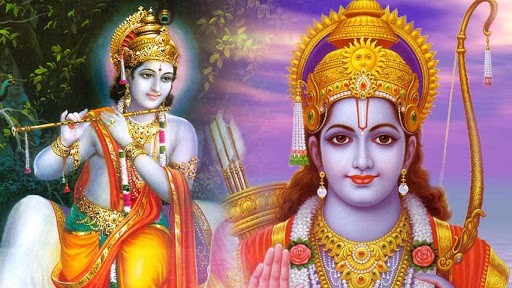The deadly coronavirus that entered India while there was still nip in the air has beaten rising mercury, humid conditions, unique Indian genome and has entered monsoon season with more potency as fresh cases are only breaking all records in the country.
India recorded a single-day spike of record 24,850 new coronavirus cases on Sunday, taking its total tally to 6.73 lakh corona-positive cases.
Top Indian microbiologists were hopeful in March that after the 21-day lockdown, as summer approaches, the rise in temperature would play an important role in preventing the drastic spread of COVID-19 virus in India.
Several virologists hinted that by June this year, the impact of COVID-19 would be less than what it appeared in March-April.
The claims have fallen flat as the virus is mutating fast, becoming more potent than ever.
According to experts, the novel coronavirus is a new virus whose seasonality and response to hot humid weather was never fully understood.
"The theory was based on the fact that high temperatures can kill the virus as in sterilisation techniques used in healthcare. But these are controlled environment conditions. There are many other factors besides temperature, humidity which influence the transmission rate among humans," Dr Anu Gupta, Head, Microbiologist and Infection Control, Fortis Escorts Heart Institute, told IANS.
There is no built-up immunity to COVID-19 in humans.
"Also, asymptomatic people might be passing it to many others unknowingly. New viruses tend not to follow the seasonal trend in their first year," Gupta emphasized.
Globally, as several countries are now experiencing hot weather, the World Health Organization (WHO) reported a record hike in the number of coronavirus cases, with the total rising by 2,12,326 in 24 hours in the highest single-day increase since COVID-19 broke out.
So far over 11 million people worldwide have tested positive for the disease which has led to over 5,25,000 deaths, according to data from Johns Hopkins University. The US remained the worst-hit country with over 28 lakh cases, followed by Brazil with 15.8 lakh.
According to Sandeep Nayar, Senior Consultant and HOD, Respiratory Medicine, Allergy & Sleep Disorders, BLK Super Speciality Hospital in New Delhi, whether temperature plays a role in COVID-19 infection is highly debated.
One school of thought said in the tropical regions of South Asia, the virus might not thrive longer.
"On the other hand, another school of thought has found that novel Coronavirus can survive in a hot and humid environment and tropical climate does not make a difference to the virus. According to them, this is what distinguishes the novel coronavirus from other common viruses, which usually wane in hot weather," stressed Nayar.
Not much has been studied in the past and no definite treatment or vaccine is available to date.
"Every day, new properties and manifestation of the disease come up. As of now, the only way to prevent this monster is by taking appropriate precautions. Hand hygiene, social distancing, cough etiquette and face masks definitely reduce spread of COVID-19 infection," Nayar told IANS.
Not just top Indian health experts, even Indian-American scientists had this theory in mind that sunshine and summer may ebb the spread of the coronavirus.
Ravi Godse, Director of Discharge Planning, UPMC Shadyside Pennsylvania in the US told IANS in April: "In the summer, the humidity can go up as well, meaning more water drops in the air. If the air is saturated with water and somebody sneezes virus droplets into such air, it is likely that the droplets will fall to the ground quicker, making them less infectious. So the short answer is yes, summer/sunshine could be bettera.
According to Dr Puneet Khanna, Head of Respiratory Medicine and Pulmonology, Manipal Hospital, Delhi, COVID-19 death rates are not too different in tropical countries but since the disease affected them late it was yet to show its peak in these areas.
"The virus can survive well in hot and humid countries and this is proven now," he stressed.






Comments
If hindus start eating beef based on this, then price will increase 2-3 times more than today's rate....very bad....
Chaddis eating beef sukka as well.
Dear YOGESH...
Please carefully read the below verse from BG and ponder on it. Also REFLECT on y BG mentioned this here.
Bhagavad Gita 7:20
Those whose INTELLIGENCE has been stolen by MATERIAL DESIRES surrender onto Demigods (Besides TRUE GOD) and follow the particular rules and regulations of WORSHIP according to their own natures...
I think U should not worship the idols and statues instead worship the TRUE GOD who is formless (NA TASYA PRATIMA ASTI). This is the TRUTH and U should follow the BG on this too...
Those who don't eat non veg. Should replace their pointed teeth to flat teeth.
Less intelligent people always want to imitate God and there activities without knowing the proper fact and reason behind the activities.
Like lord Shiva once consumed POISON. Can any ordinary human do this ,No. So we should not try to imitate God. But We should always follow the instructions given by them. God has given enough instructions through his word in BHAGAVAD Gita and other scripture. Where he instructed to offer him only four type of eatable things i.e. Leaf, Flower, Fruit and water and consume it. This is why, we should always try to follow God's instructions carefully rather than imitating his activity.
So what......and who gave you the list of God's diet......why don't you request your Hindu people to close now the restaurants which serves non veg......they will throw you in garbage....better be silent....
instead of looking at the fact and trying to know the TRUTH ,,, some cheddis are already blaming him blindly... when in fact intelligent will look for the truth.
Sita kidnapped When laxman was busy in hunting deer for their lunch. This story clearly tells about their love for meat.
Very well said. If entire hindus studies their scripture they will become non-vegetarian and stops idol worship without any delay.
Add new comment